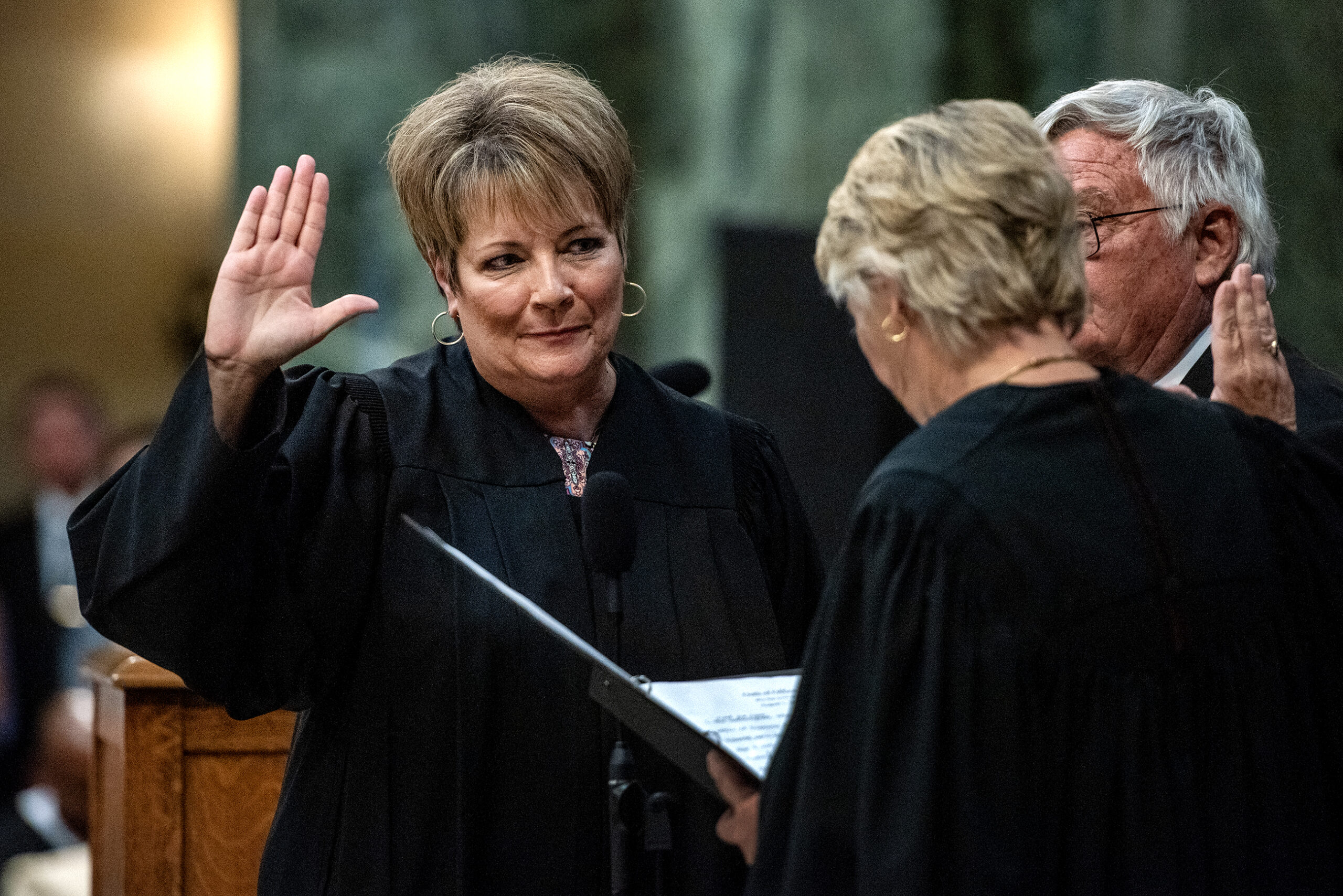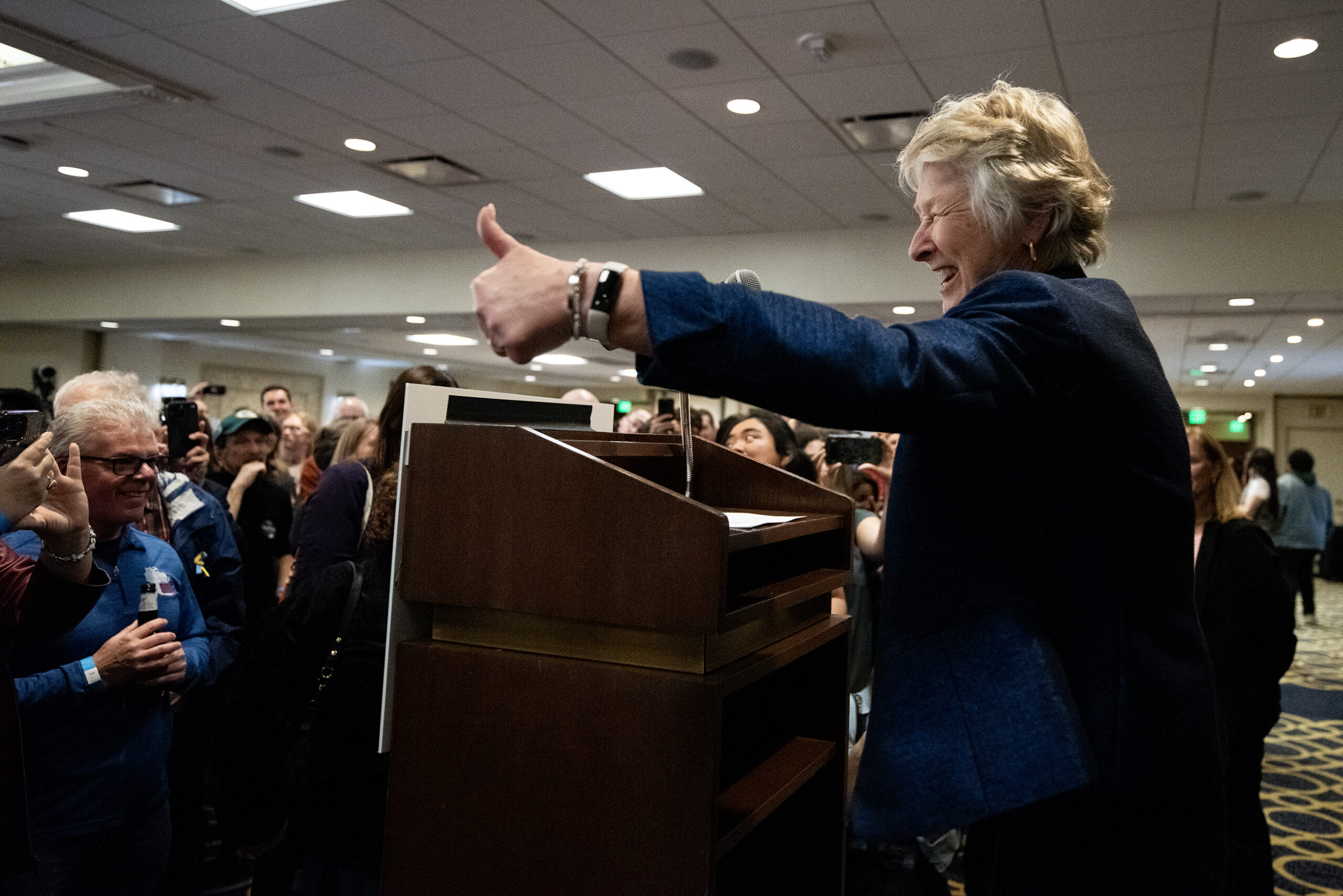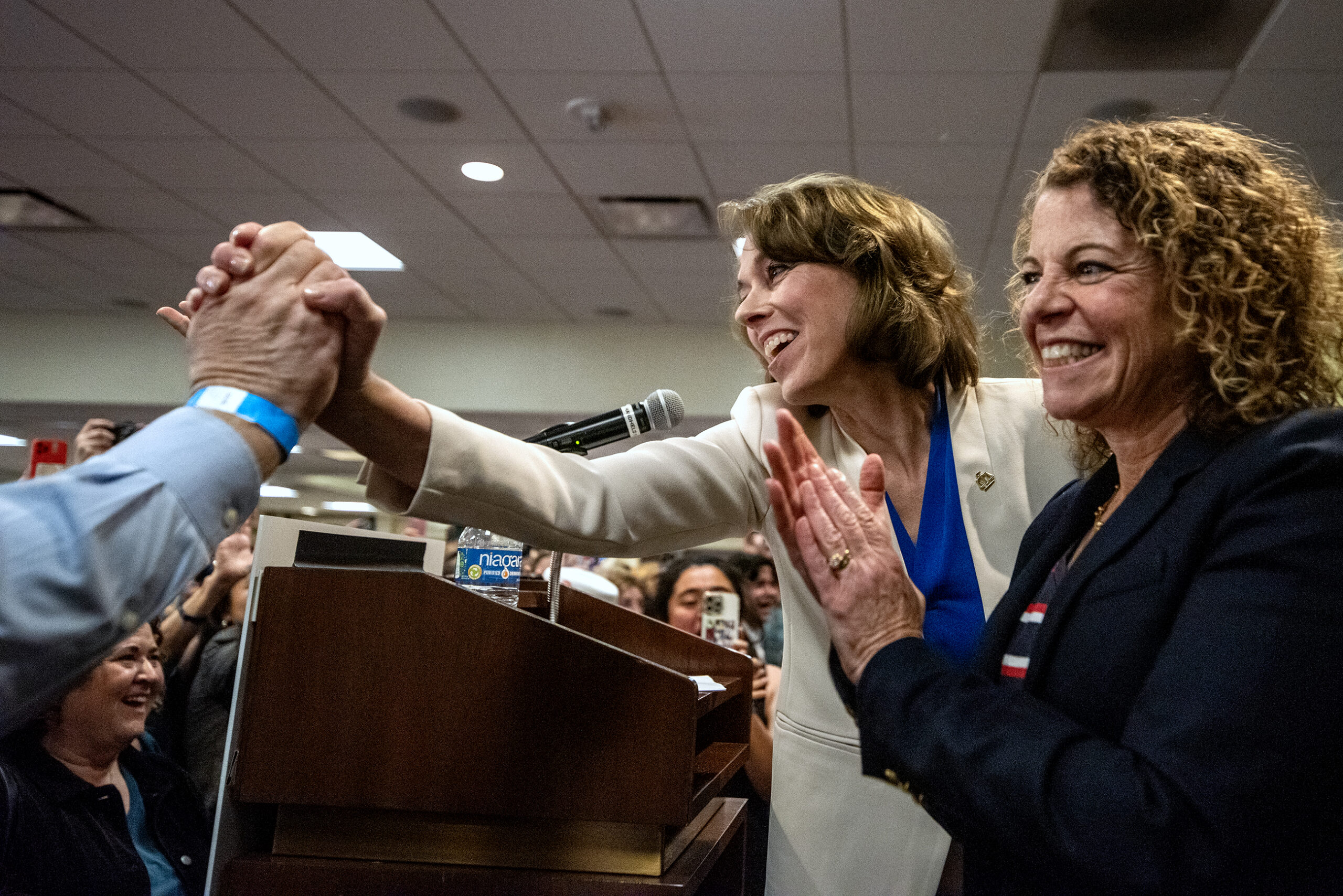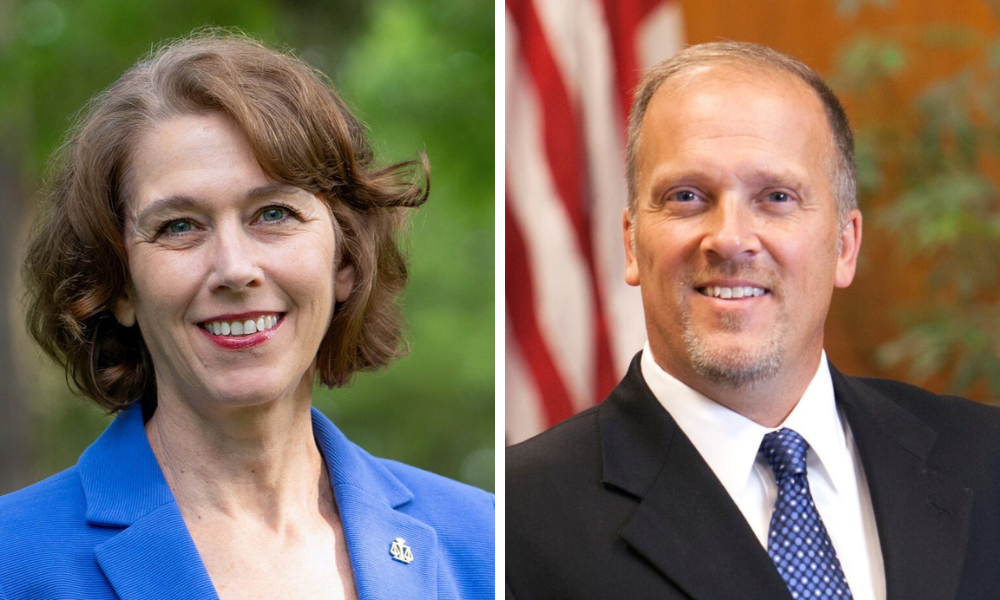Promising to ensure justice and fairness for all, Justice Janet Protasiewicz was officially sworn in to a 10-year term on the Wisconsin Supreme Court Tuesday, flipping the court from a conservative to a liberal majority for the first time since 2008.
The investiture ceremony bore similarities to a governor’s inauguration. Hundreds gathered in the state Capitol rotunda to hear Protasiewicz speak, punctuating the roughly hour-long event with standing ovations and cheers.
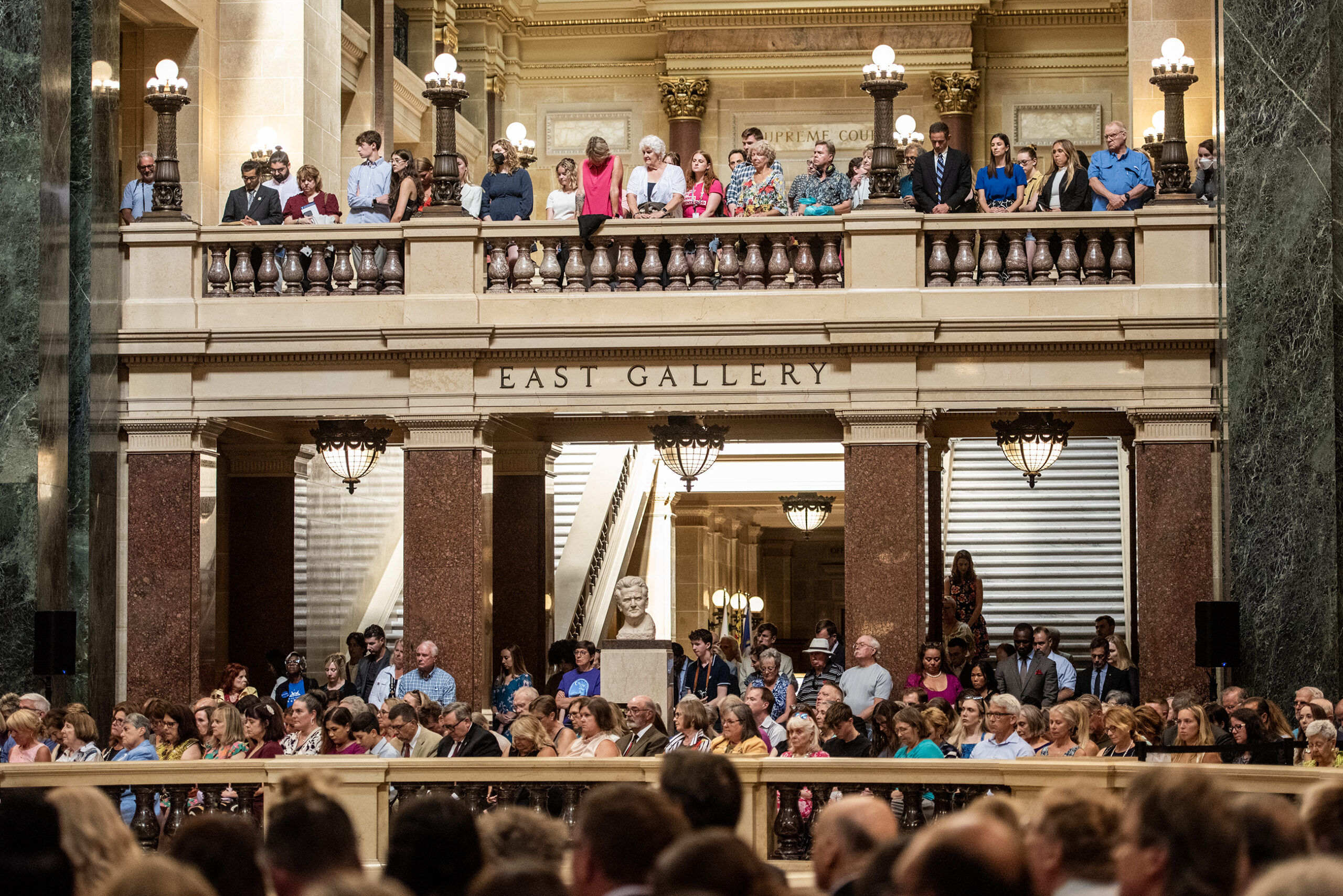
Stay informed on the latest news
Sign up for WPR’s email newsletter.
Protasiewicz, who spoke for just over 20 minutes, largely avoided some of the hot-button themes that helped her mobilize Democratic voters in her high-turnout, double-digit victory in April. Absent was any mention of her belief that women have a right to choose when it comes to abortion or her assertion that the political maps drawn by Republicans were “rigged.”
Instead, Protasiewicz talked about her time growing up on Milwaukee’s south side, spending 25 years as a prosecutor in the Milwaukee County District Attorney’s office and most of the last decade as a circuit court judge.
“All of those long hours led to an incredible opportunity to see our judicial system up close, and it allowed me to see what I believe is universal,” she said. “And that is everyone should get a fair shot to demand justice and not feel like the thumb is on the scale against them.”
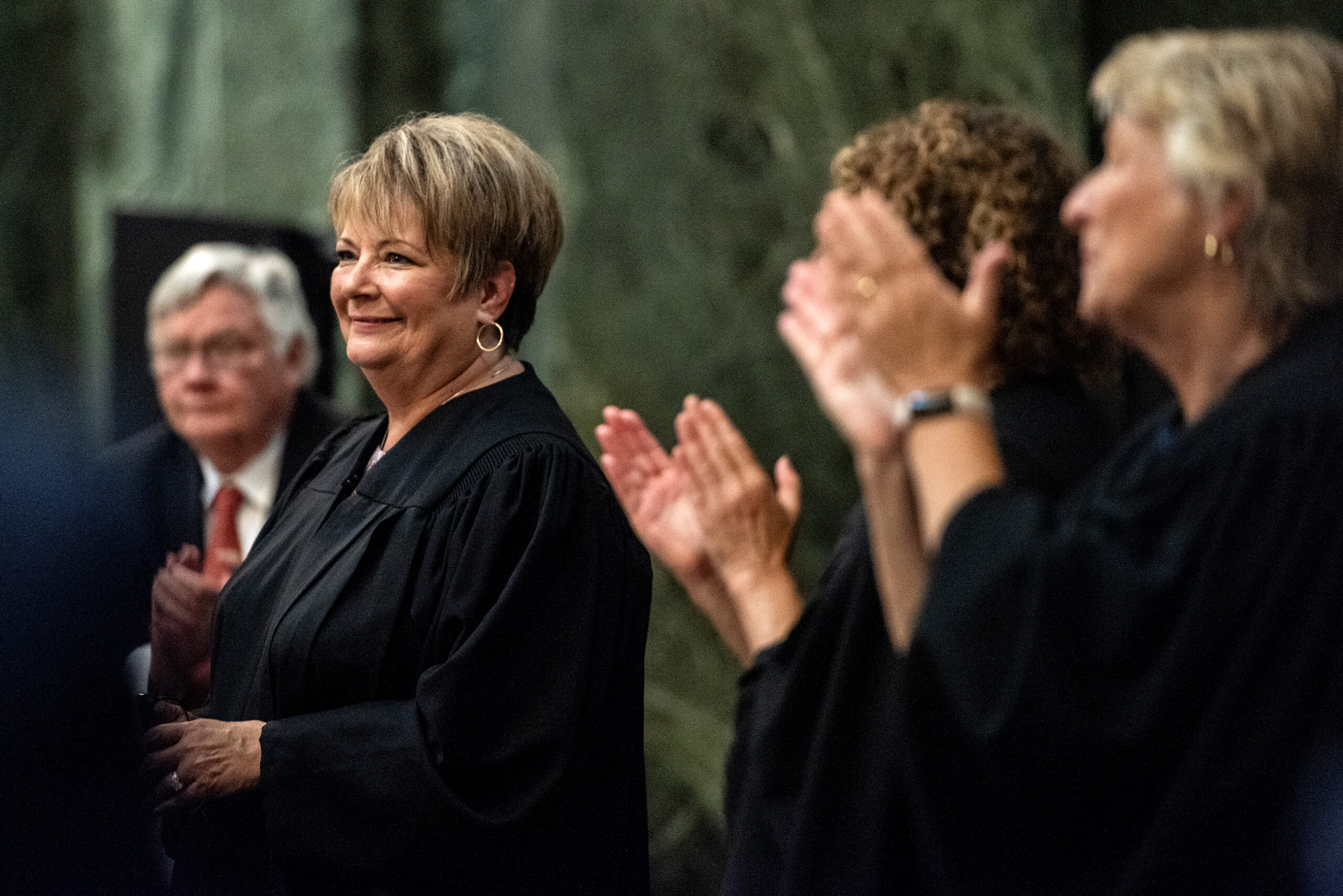
While the court is officially nonpartisan, the political ramifications of Protasiewicz’s win are massive. For the past 15 years, the court was regularly an ally to Republicans, upholding many of the laws signed during the tenure of former Republican Gov. Scott Walker.
Now, with a challenge to the state’s pre-Civil War abortion ban already working its way through the state court system and a challenge to the state’s redistricting plan looming, a high court run by liberal justices will have the final say.
The court’s other three liberals — Justices Ann Walsh Bradley, Rebecca Dallet and Jill Karofsky — were all in attendance at Tuesday’s ceremony.
“What an amazing day,” Bradley said during her own speech before administering the oath of office to Protasiewicz. “I say let us rejoice and be glad.”
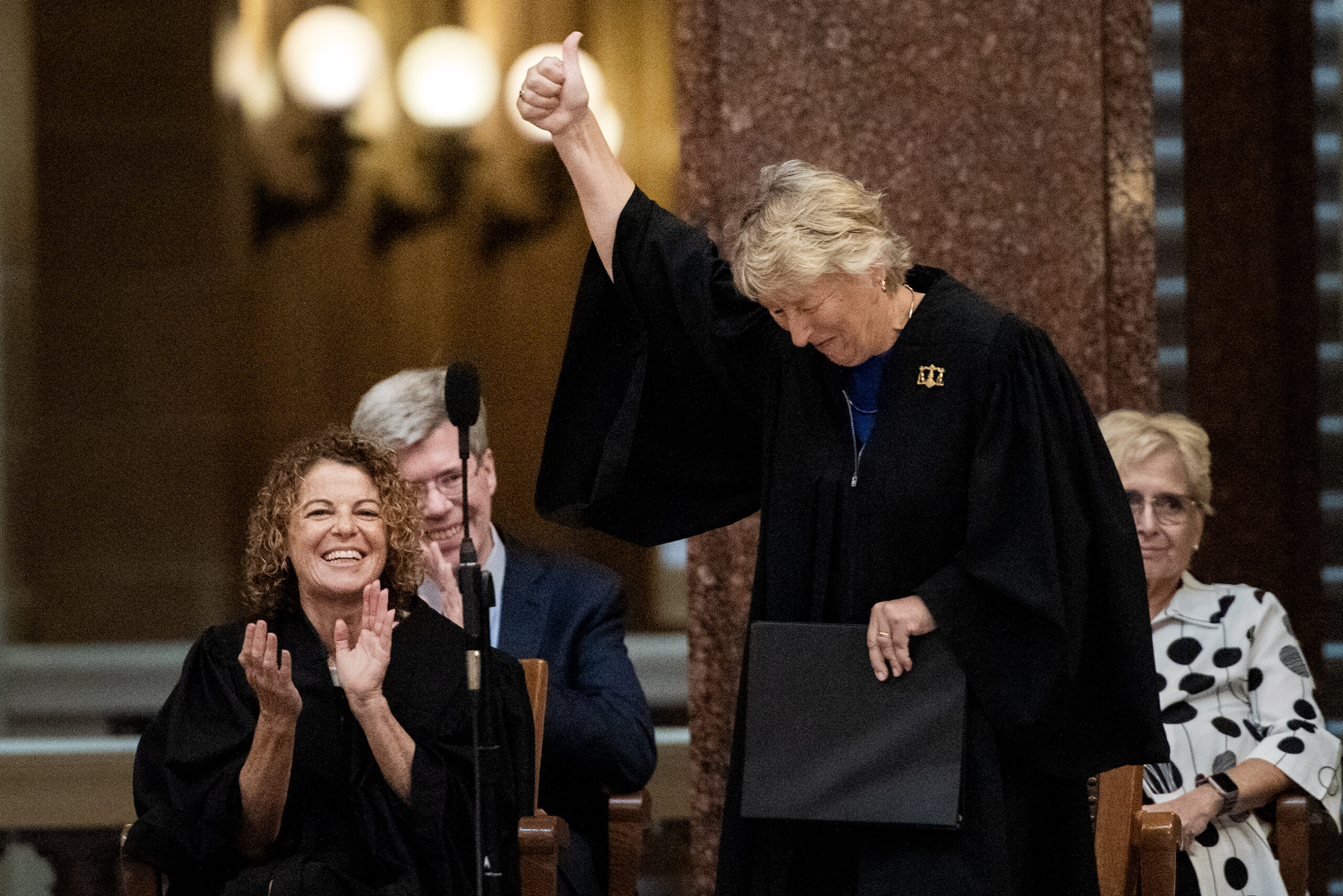
Dallet, who used her own investiture speech in 2018 to call on courts to be more inclusive of people of color, hit on similar themes during a brief speech Tuesday. Dallet said she’d gotten to know Protasiewicz well during their experience as prosecutors and judges in Milwaukee County.
“She knows that our system is imperfect, and we must work hard to reduce inequity,” Dallet said. “And make sure that we live up to the promise of America, that all of us are treated equally before the law.”
Protasiewicz replaces former conservative Justice Patience Roggensack, who retired Friday. Roggensack was first elected 20 years ago and decided not to seek a third term.
Among the remaining conservatives on the court, only swing Justice Brian Hagedorn attended Tuesday’s investiture, sitting in the front row next to Karofsky.
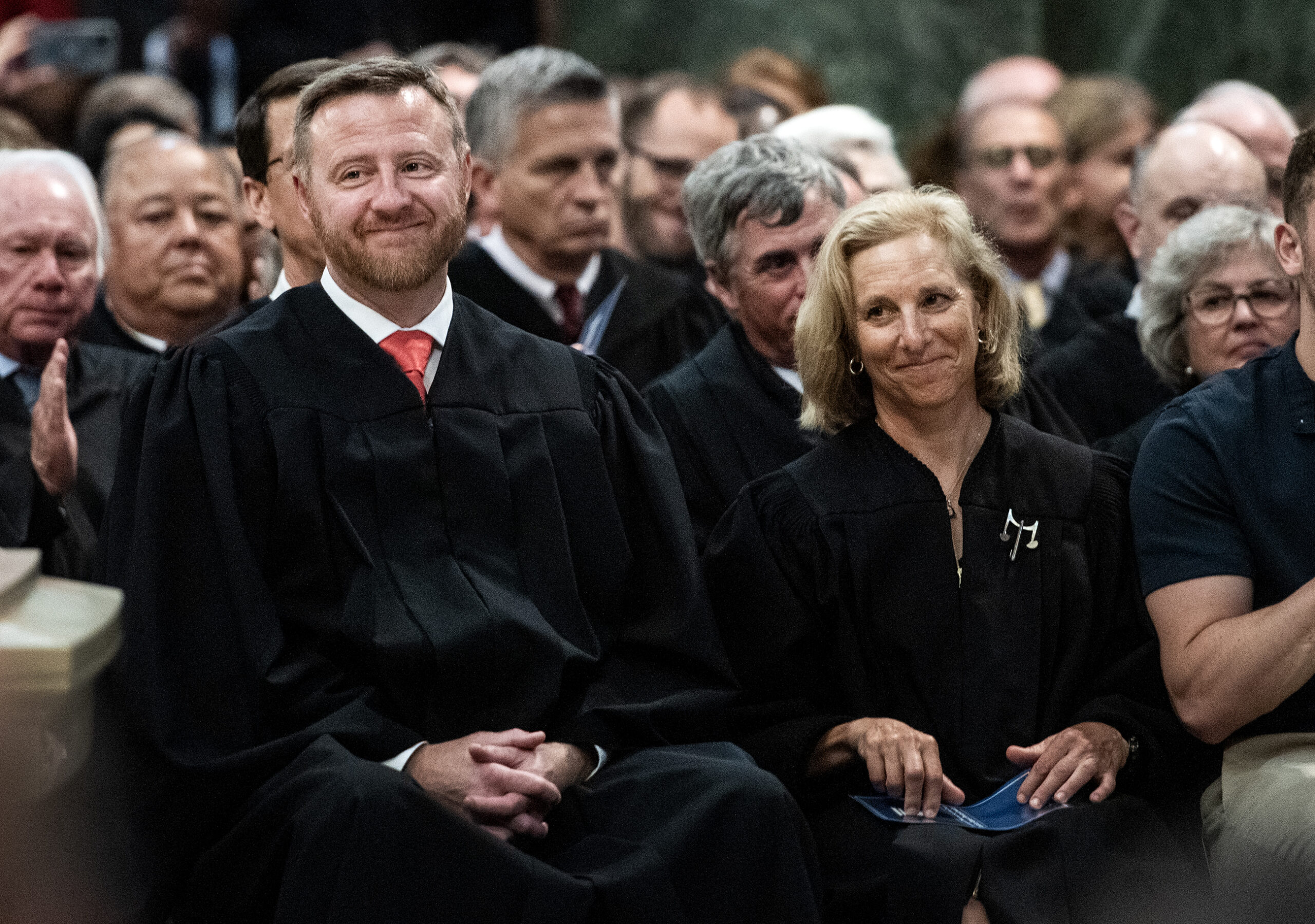
“To my colleagues who are here today,” Protasiewicz said, “I’m under no illusion that we will always agree. But I respect each of you immensely. And you have my promise to work with you to fulfill our duties to the people of Wisconsin.”
The court’s other conservatives, Chief Justice Annette Ziegler and Justice Rebecca Bradley, did not attend Tuesday’s ceremony. Justice Rebecca Bradley campaigned hard for Protasiewicz’s opponent, former conservative Justice Dan Kelly.
Conservatives were also critical of the court’s new liberal majority after it was reported Monday by WISN-AM that the court planned to fire Randy Koschnick, the director of the state court system since 2017. Koschnick, a conservative, ran an unsuccessful campaign for Supreme Court in 2009. He previously worked as a judge and public defender in Jefferson County.
“Political purges of court employees are beyond the pale,” Justice Rebecca Bradley told WisPolitics in a text message Tuesday.
Other changes to the court’s day-to-day operations could also be in store. While Ziegler was recently elected by her peers to a two-year term as chief justice, the court’s new liberal majority is expected to eventually choose a new chief to replace her.
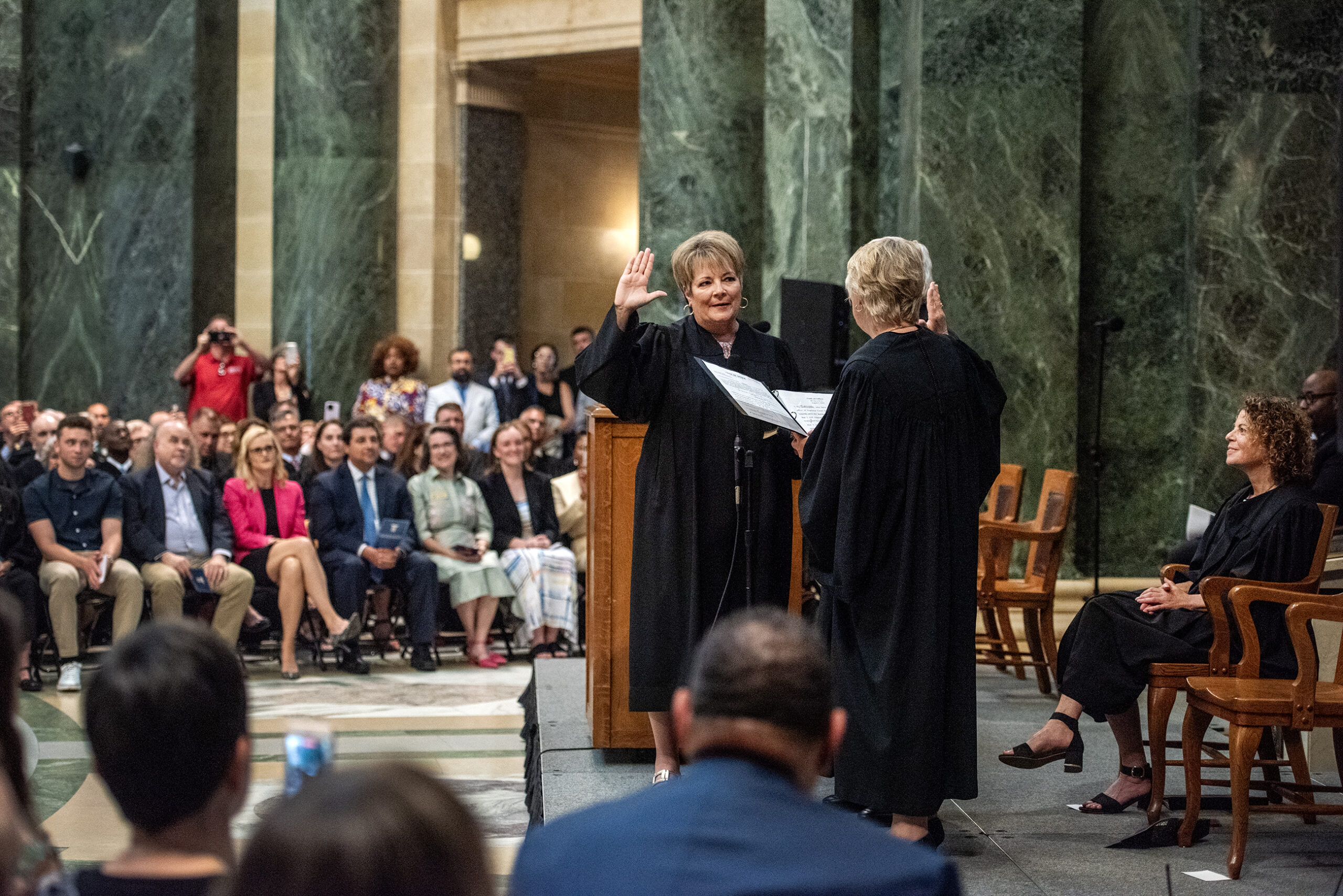
Protasiewicz won’t have to stand for reelection for another decade, meaning she can remain on the seven-member court until at least 2033.
Barring the unexpected, the next chance conservatives have to flip the court back will be in April 2025, when Justice Ann Walsh Bradley is up for reelection. Conservatives would then be on the defensive again in 2026, when Justice Rebecca Bradley’s ten-year term is up.
Wisconsin Public Radio, © Copyright 2025, Board of Regents of the University of Wisconsin System and Wisconsin Educational Communications Board.
